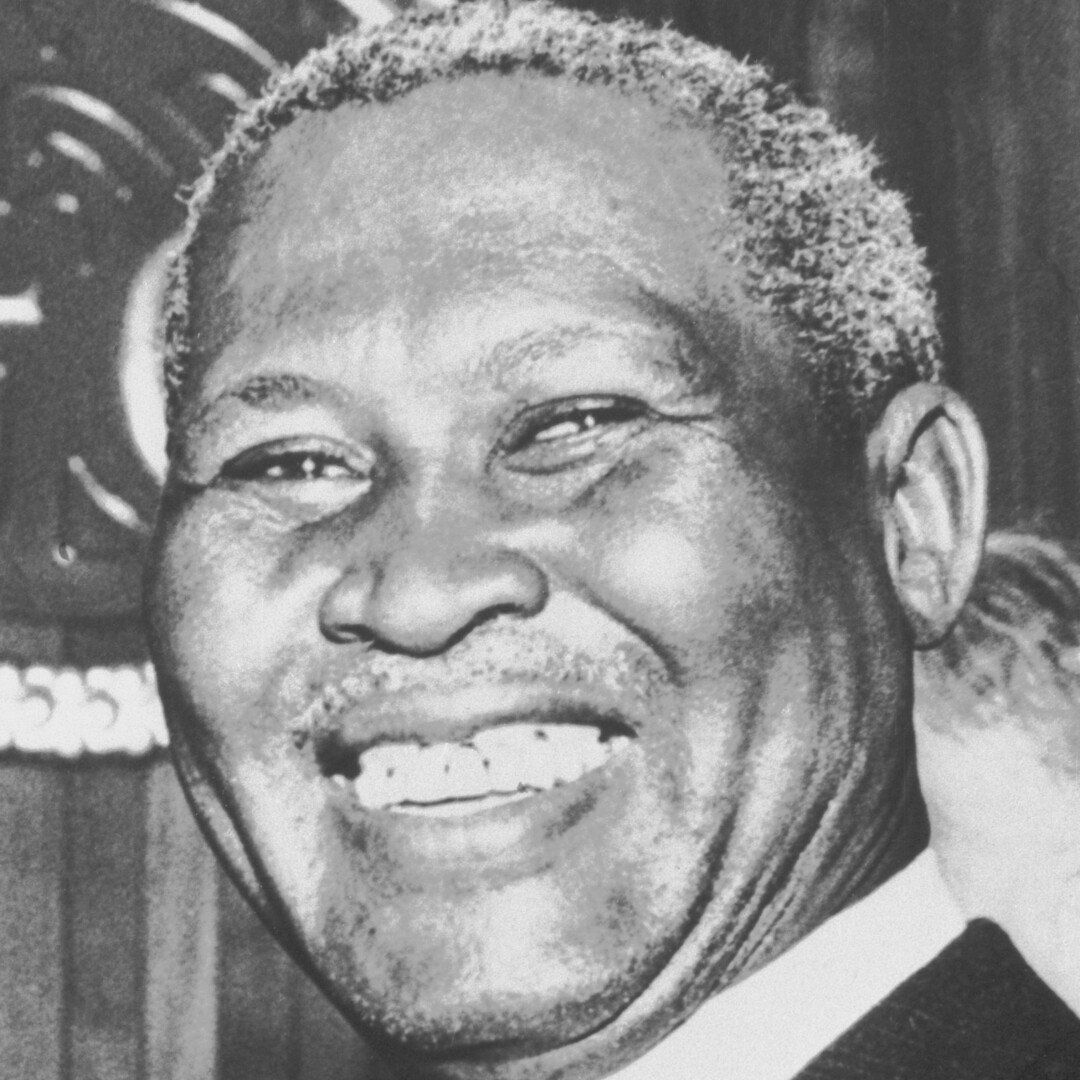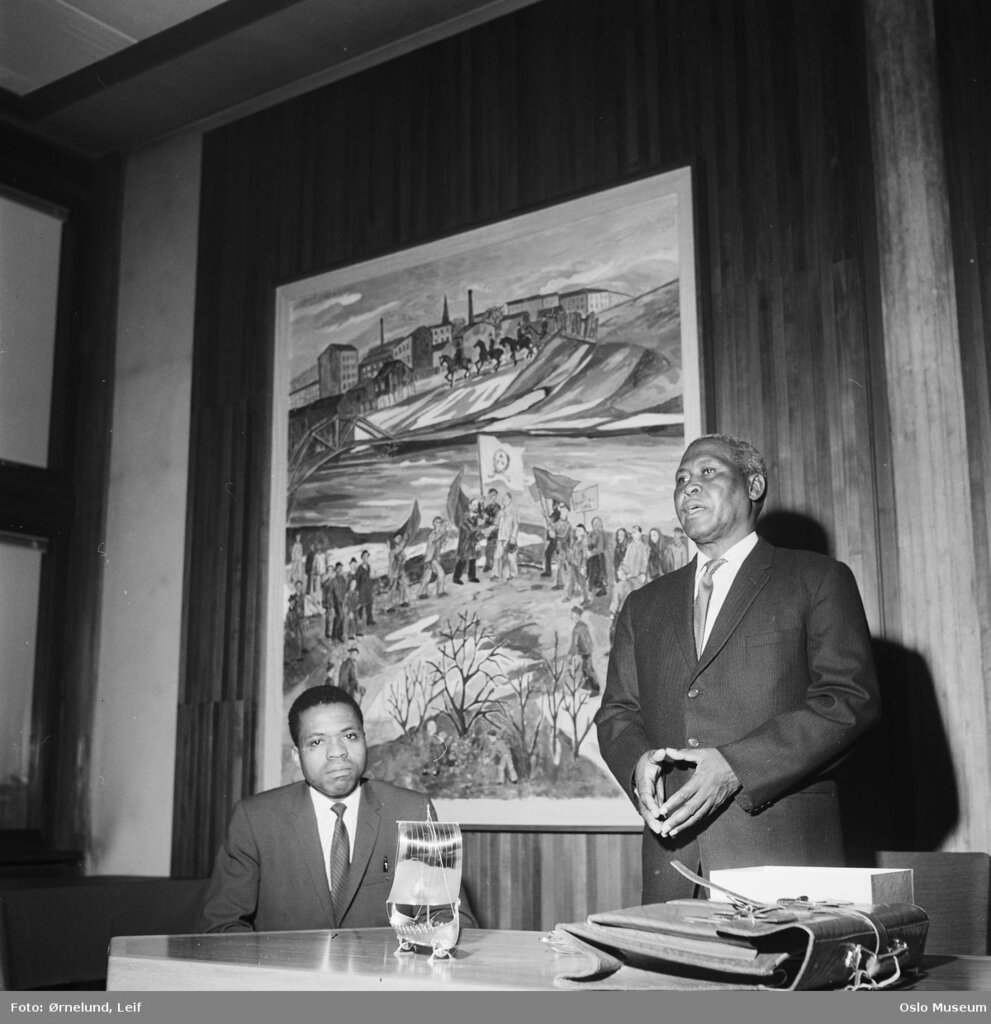Albert Lutuli
Speed read
Albert Lutuli was awarded the Nobel Peace Prize for his non-violent struggle against Apartheid in South Africa.

Full name: Albert John Lutuli
Born: 1898, Bulawayo, Southern Rhodesia (now Zimbabwe)
Died: 21 July 1967, Stanger, South Africa
Date awarded: 23 October 1961
Africa’s first Nobel Peace Prize laureate
At the dawn of the 1960s, European colonial powers loosened their grip on Africa and many Africans gained national independence. But the white minority in South Africa continued to develop its harsh segregationist policy. Zulu Chief Albert Lutuli led the black population in a non-violent campaign against apartheid under the banner of the African National Congress (ANC) liberation movement. In the 1950s, Lutuli helped to organise numerous demonstrations and strikes. For this he was subjected to surveillance, imprisonment and abuse by the apartheid government. The selection of Lutuli as laureate represented an important step in the international effort to ban apartheid. From then on, human rights issues became a major focus of the Norwegian Nobel Committee.
"If the non-white people of South Africa ever lift themselves from their humiliation without resorting to violence and terror, then it will be above all because of the work of Lutuli, their fearless and incorruptible leader who, thanks to his own high ethical standards, has rallied his people in support of this policy ..."
Gunnar Jahn, Chairman of the Nobel Committee, Presentation Speech, 10 December 1961.
The massacre that marked a crossroads in South African history
In March 1960, South African police killed 69 demonstrators who were peacefully protesting the hated Pass Laws in Johannesburg’s Sharpeville township. The laws required all black people to carry a special pass in order to enter “white only” areas of the country. Lutuli denounced the statute by burning his pass in public. The authorities declared a state of emergency to quell the unrest. More than 18,000 people were jailed, and the ANC was banned and forced to go underground. Those in favour of armed revolt gained sway, and Nelson Mandela was elected military leader of the ANC.
| Massacre Term originally meaning slaughterhouse, commonly used today to denote the murder of many people at the same time – a bloodbath. |
"The Nobel Prize must not become a pawn to be used in an international political chess-game, but this is exactly what the Nobel Committee has allowed to happen this year."
Professor Karl Borgin in the Norwegian journal 'Farmand', 16 December 1961.
The Norwegian Nobel Committee’s first open attack against oppressors
By awarding the peace prize to Lutuli, the Norwegian Nobel Committee elected for the first time to openly admonish a country’s political leadership. Committee Chairman Gunnar Jahn spoke out against the racist regime in South Africa, giving his support to the struggle to combat apartheid by non-violent means. In this way the committee hoped to help prevent the racial conflict from escalating into a bloody civil war.
Peace laureate and Zulu chief
Albert Lutuli was the first Nobel Peace Prize laureate to break the Western dress code and accept his prize in a national costume. Instead of the usual black suit he wore the raiment of a Zulu chief, which clearly marked his protest against the South African Government. It also indicated that he still considered himself a leader of his people even though the government had deposed him in his home province. In his Nobel Prize lecture, Lutuli emphasised that it was a Christian duty to use non-violent means to oppose South Africa’s racist regime and to work towards establishing democracy for all ethnic groups, regardless of skin colour.
| Zulu An ethnic group of roughly 8 million people (2005), living primarily in KwaZulu-Natal Province, South Africa. A war-like people before the whites came. The Zulus fought hard against white colonialism in the 1800s. |

Norwegian youth mobilise against apartheid
Lutuli’s peace prize was a powerful motivator for the Norwegian anti-apartheid movement. Students, political youth organisations and Christian groups organised a march of over 5,000 people who paid tribute to the peace laureate in front of Oslo City Hall. In the 1960s, anti-apartheid activists began to cooperate more closely, forming the Norwegian Council for Southern Africa in 1967. The organisation followed up Lutuli’s call for a boycott of the apartheid regime and participated in the international solidarity movement for the ANC.
"To remain neutral in a situation where the laws of the land virtually criticized God for having created men of colour was the sort of thing I could not, as a Christian, tolerate."
Albert Lutuli, Nobel Prize lecture, 11 December 1961.
Learn more
Chief of his tribe and president-general of the African National Congress, Albert John Lutuli was the leader of ten million black Africans in their nonviolent campaign for civil rights in South Africa ...
Disclaimer: Every effort has been made by the publisher to credit organisations and individuals with regard to the supply of photographs. Please notify the publishers regarding corrections.
Nobel Prizes and laureates
Six prizes were awarded for achievements that have conferred the greatest benefit to humankind. The 12 laureates' work and discoveries range from proteins' structures and machine learning to fighting for a world free of nuclear weapons.
See them all presented here.
